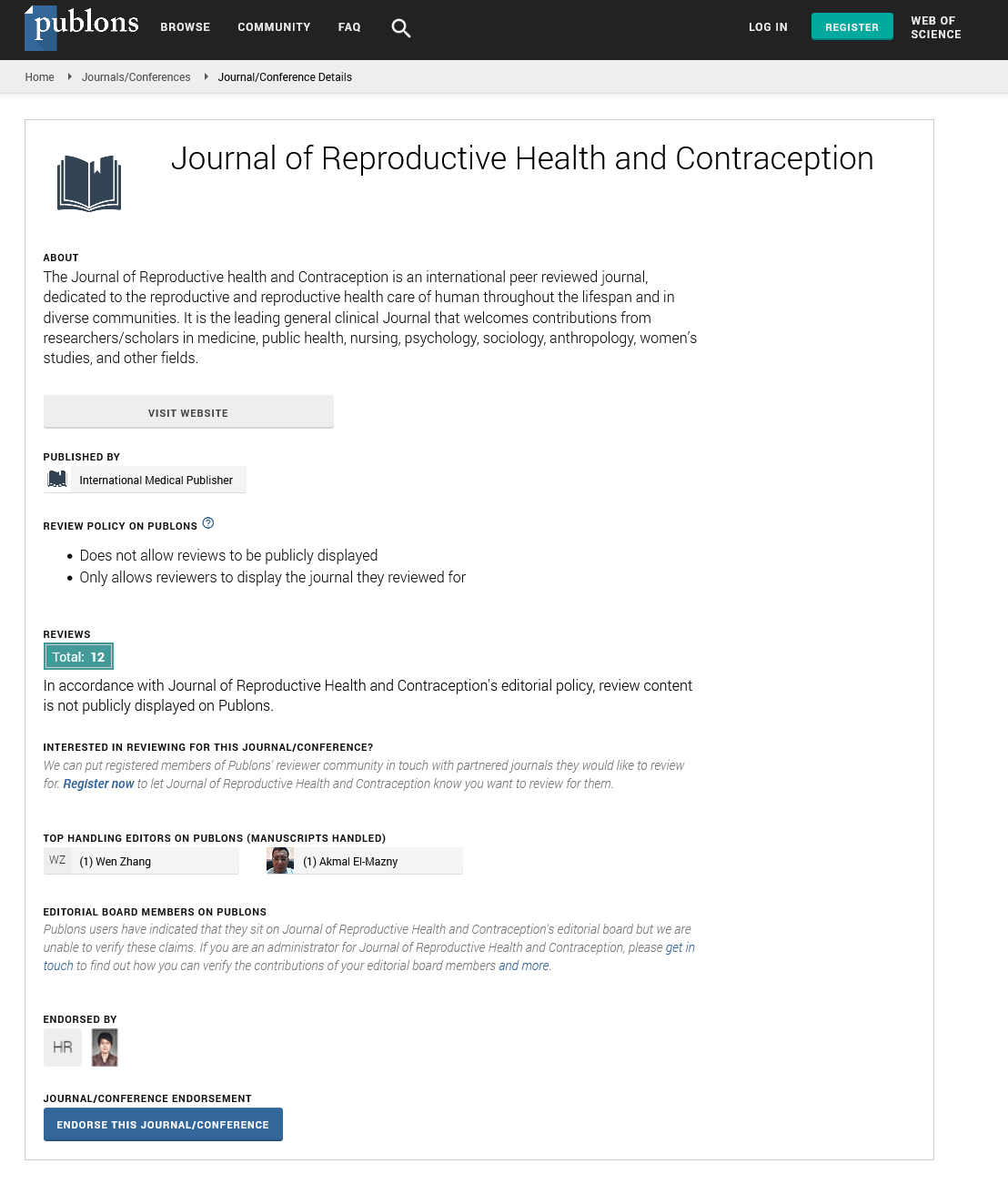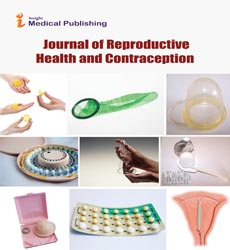Abstract
Trends in Contraceptive Choices among Women Attending the Family Planning Clinic in a Nigerian Tertiary Hospital in Makurdi, Nigeria
Aims/Objectives: To examine the socio-demographic characteristics and the trends in contraceptive choices including counseling of clients, using the family planning clinic of the newly established Benue State University Teaching Hospital, Makurdi. Study design: A retrospective cross-sectional study. Setting: Benue State University Teaching Hospital, Makurdi, Nigeria. Subjects: New subjects attending the family planning clinic. Main outcome measures: Contraceptive choices and trend including the social demographic variables of subjects over the study period. Results: During the 3 year study period, 807 clients were seen at the family planning clinic. The overall contraceptive prevalence rate was 39.0% with a rising trend from 17.7% in the first year to 50.8% in the last year. Majority of the clients chose implants 467 (57.9%), 20.4% condoms, 12.8% IUCDs, 9.9% injectable, 5.3% combined pills and 0.1% bilateral tubal ligation. Adolescents constituted only 16% of the population studied. Conclusions: There was a rising trend in contraceptive use with the implant as the most common contraceptive used in our center followed by the condom.
Author(s):
Samuel K Hembah-Hilekaan, Austin A Ojabo, Audu Onyemocho, Peter E Onche, Emmanuel Maanongun, Daniel O Hilary and Celina Ishell
Abstract | Full-Text | PDF
Share this

Google scholar citation report
Citations : 201
Journal of Reproductive Health and Contraception received 201 citations as per google scholar report
Journal of Reproductive Health and Contraception peer review process verified at publons
Abstracted/Indexed in
- Google Scholar
- China National Knowledge Infrastructure (CNKI)
- WorldCat
- Publons
Open Access Journals
- Aquaculture & Veterinary Science
- Chemistry & Chemical Sciences
- Clinical Sciences
- Engineering
- General Science
- Genetics & Molecular Biology
- Health Care & Nursing
- Immunology & Microbiology
- Materials Science
- Mathematics & Physics
- Medical Sciences
- Neurology & Psychiatry
- Oncology & Cancer Science
- Pharmaceutical Sciences


